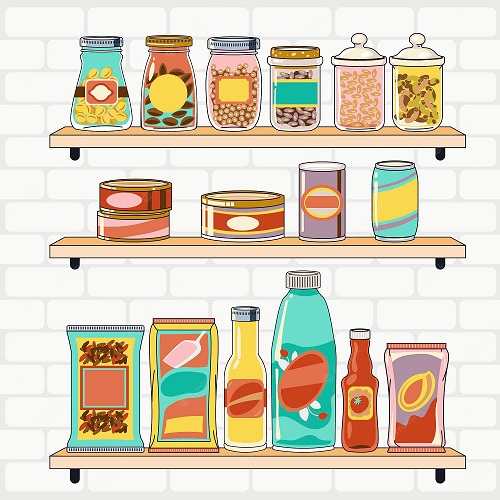It’s 5.30 pm you’ve had a busy day at work, and you’ve just walked in the door with no idea what to serve for dinner. There is a hungry toddler to deal with, an empty fridge and motivation are at an all-time low. Your first inclination is to order a takeaway – but I am going to give you five quick and healthy, yet easy dinner hacks to make your own ‘fast food, ’ with a quick trip to the supermarket on your way home.
5 Simple and Easy Dinner Hacks
- Roast Chicken and salad – Roast BBQ chicken, a bag of prepared salad and microwave brown rice sachet.
- Salmon and Couscous – Salmon fillets (frozen or fresh), frozen green peas, fresh carrots and wholemeal couscous
- Beef and slaw wraps – Lean beef strips, wholemeal wraps, an avocado, plus a bag of fresh kale slaw
- Naan Bread Pizzas – Naan bread, tomato pesto, grated cheese, chopped ham, tomato and served with baby spinach on the side
- Chicken Stirfry – Chicken Breast tenderloins, frozen stirfry packet mix and rice noodles
Fast and healthy weekend meals can also include
Build your own burgers – burger buns, tomato, lettuce, beetroot, cheese cucumber and lean meat patties
Instant fried rice – instant rice (or cauliflower rice), eggs, ham, frozen cubed vegetables
Quick Healthy Frittata – using leftover veggies, eggs and ham
Share platters – cheese, chopped fresh vegetables, ricotta dip, breadsticks or pita crisps and roast chicken
Tips on how to prepare for the week ahead
Preparing quick and delicious meals might seem impossible with everything else you have going on in your life! But by using some simple tips, mixed with planning, you’ll be blown away by how easy cooking delicious food can be.
The simplest, most effective system for meal planning is to break things down into three key steps: selecting healthy recipes, shopping for ingredients, and prepping your meals.
Meal planning is asking the ‘what’s for dinner question’ ONCE for the whole week, (instead of every night), and then shopping for and prepping the ingredients before cooking.
Have a look at your calendar for the upcoming week and decide the number of nights you would like to make dinner at home. Five nights is the most common denominator, but for some people, three nights is the sweet spot. On the nights that you’re cooking, what do those meals need to do?
For example, on the nights that your child has a swim class, a 10-hour slow cooker recipe is a good idea. Or it needs to be something you can whip up in 10 mins – so a baked dish won’t cut it. Ask the family for their input on what they may like to eat – this way it is a team decision. Flick through recipe books together or your favourite blog – find recipes everyone gets excited about!
Make an ingredient list: Start by going through each recipe’s ingredient list to make up the master list of things you’ll need for the week. Then, with keen eyes, go through your kitchen and cross off anything you already have. Now you’ve got a very accurate grocery list.
You’ve picked your recipe, you’ve made a grocery list, you’ve shopped for the meals (take the kids and involve them in the process), and now you’ve come to the point where the plan truly becomes dinner. But there’s one more step — and this one will help you beat cooking fatigue during the week. You’ve got to do some prep! This is where it’s a good time to look into making some healthy freezable snacks (which the kids love doing as a weekend activity) or chopping up vegetables that may be used over the next couple of days.
It is usually harder to do anything with the kids, especially if you are used to doing it yourself. But, teaching kids’ great habits by letting them plan and shop with you when they are young goes a long way towards raising budget conscious and healthy young adults.
Five tips to easy planning
- Scan your weekly specials – learn to love your junk mail not junk food. Save money by buying meats on special, fresh foods in season and gather inspiration for meal ideas.
- Alternate proteins – try to include at least 2 red meat, and a variety of white meats such as chicken, turkey, pork and fish or even a plant-based protein meal
- Go for alternate grains – each grain offers a different nutritional profile so instead of white pasta or potatoes each night, offer things such as wholemeal couscous, brown rice, buckwheat pasta or vermicelli noodles
- Variety is key – keep challenging your children by offering new vegetable choices. Edamame beans instead of peas, sweet potato instead of carrot, fresh corn on the cob is a novelty as are carrots made into noodles!
- Each morning when you’re eating breakfast, make a mental note of what you’ll make for dinner so you can defrost, set up the slow cooker, or prep some veggies before you leave the house. Eat your perishables up early in the week, and then make a quick trip to the markets to gather fruits and veggies or use frozen veggies in the latter half of the week.





